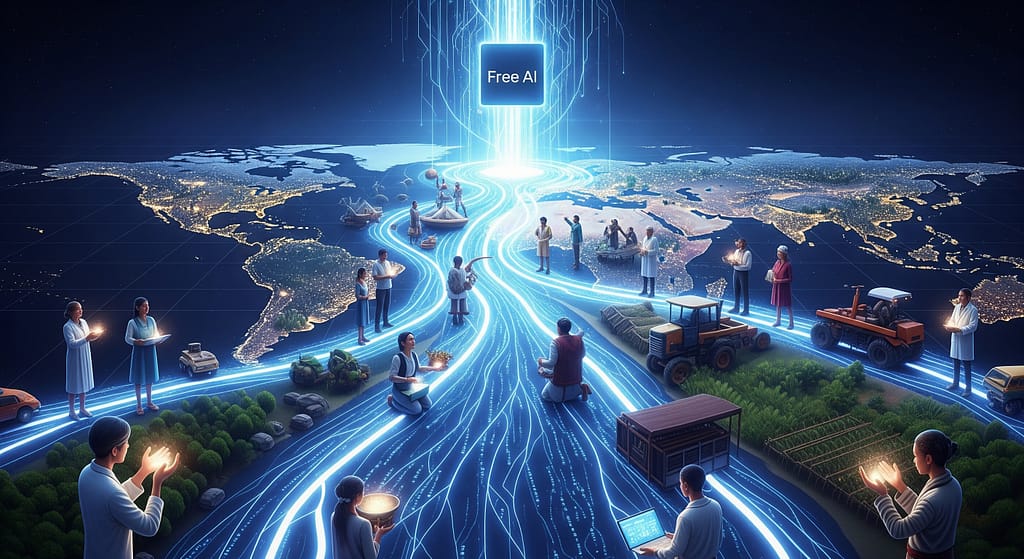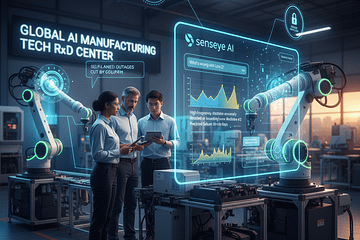Remember that moment, not so long ago, when ChatGPT Plus was the sole bastion of the truly advanced conversational model? The days when you needed to fork over your hard-earned cash to get access to the really brilliant reasoning and analytical capabilities? It feels like ages ago now, doesn’t it? As if in a flash, the world changed with the release of ChatGPT 5.0, but not for the reason you might think. A lot of folks were vexed about losing the 4o designation, which, I admit, is a curious little wrinkle. But the real story is something far more profound and, frankly, fascinating. It’s the great OpenAI gambit: giving away their reasoning model for free.
We’re standing in what you could call the “free AI moment,” and it’s something worth ruminating on. This isn’t just a marketing ploy or a limited-time offer. It’s a seismic shift, a bona fide democratization of a powerful technology that was, until recently, behind a paywall. For millions of people across the globe, for whom a subscription in American dollars is simply untenable, this is a monumental moment. A game-changer. It’s the moment they can finally access a tool that was previously beyond their reach.
So, what does this new level of access truly unlock for people? What can we do now that we couldn’t before?
- Multimodal Thinking: You’re not just limited to text anymore. Imagine being able to upload images, charts, and all sorts of mixed data, then getting a coherent, insightful response. That’s a new frontier of information synthesis.
- End-to-end Workflows: This isn’t about simple tasks; it’s about full-on, complex workflow automation. Think of the possibilities in business, healthcare, and software development, where you can now automate multi-step processes with a level of accuracy and judgment you just couldn’t get from a free model before.
- Multi-step Logic: The reasoning model allows for lateral, creative, and multi-step logic with far less hallucination and a whole lot more reliability. It’s a quantum leap from the more constrained models of yesteryear.
- Agentic Tasks: It’s now capable of performing agentic and judgment-based tasks in real time. This means it can make decisions and execute actions with a newfound level of autonomy.
- Domain-level Expertise: Suddenly, a vast repository of domain-level expertise that was previously unavailable in free, or even paid, tiers is now at our fingertips.
It’s a beautiful vision, isn’t it? A golden moment, some would say. But, a question of such largesse begs a deeper inquiry: can this last? Is this the golden era of free AI, a fleeting moment of technological grace before the inevitable reckoning?
The Business of Free
We know OpenAI isn’t an altruistic non-profit anymore. They’re a business, and like any business, they’ve got to make money. So, what’s their play here? My bet is it’s a masterclass in the freemium model. They’re giving away the core capability that will get a staggering number of people hooked, and then they’re hoping to convert enough of them to paid subscriptions to sustain the entire enterprise. Of course, the free model is tightly capped on usage limits. It’s still free, however.
And let’s be frank, that model is working for them. Recent industry estimates place ChatGPT’s free-to-paid conversion rate at around 5–6%. When you’ve got 250 million weekly active users, that works out to something like 12 to 15 million paying subscribers. That’s a strong conversion rate, far exceeding the typical 2-5% for most freemium SaaS products. They’re building a dominant market position by becoming the solution of choice, the default. It’s a compelling strategy.
But what about the elephant in the room—the cost? We’re talking about immense compute power and infrastructure. The energy needs of these massive models are almost unfathomable. Every query, every response, costs money. It’s not free for them to give this away. So, is this a sustainable model? The pessimists would say no, that the era of free AI is a temporary, gilded moment, and that the bills will come due. It’s a fair concern.
The Gauntlet of Competition
The flaw in this plan, of course, is the stiff and unrelenting competition. Does ChatGPT really think they can hold onto this audience for long? The next model release from a rival like Google or Anthropic will change the landscape entirely. Competitors, seeing OpenAI’s success with the freemium model, will have little choice but to follow suit. Competing on cost is always a race to the bottom, and with this move, ChatGPT just drove the floor to zero. What seems sustainable now—a fantastic conversion rate and a dominant user base—might not be tomorrow. The landscape is a high-stakes poker game, and every company is just waiting to play their next card. A single, more powerful, or simply more compelling free release from a rival could upend everything.
A New Era for the Developing World?
There’s another aspect to this that we can’t overlook. We’ve seen a proliferation of new businesses in developed nations in the wake of LLMs’ introduction. The tools were there for those who could afford them, and innovation abounded. Now, with a core reasoning model being freely accessible, will we see that same profusion in developing countries? For someone who has access to the internet, but not the financial resources to pay for software in American dollars, this is a profound opportunity.
It’s a huge deal. The vast chasm of global wealth inequality is a problem, a serious one. The opening of resources and tools that developed countries take for granted is incredibly important. If a student in a small town in Kenya can use this model to start a business, or if an entrepreneur in Vietnam can automate their workflow to the point of profitability, that’s not just a nice side effect. It’s a powerful, tangible step toward a more equitable world. It’s the kind of thing that could genuinely shift economic paradigms on a global scale. We need to watch this space, not just for the corporate jockeying, but for the human stories of innovation that are about to emerge.
So, there you have it. This is a moment to watch. Will this grand experiment in AI democratization hold? Or is this just the latest iteration of a business model designed to lead us all to the checkout line? Either way, it’s a fascinating time to be alive and watching this all unfold. It’s a time of true technological intrigue.




0 Comments